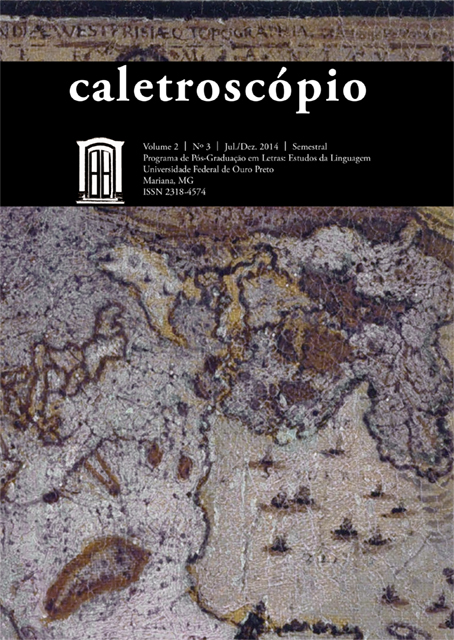The book as a poet and the unconstrained poet: the playfulness of personae in Ovid’s Tristia
Keywords:
Latin elegy, Ovid, Tristia, Metapoetry, Fictional game
Abstract
This paper focuses on the fictional game of personae in Ovid’s Tristia from the investigation of the image built of the book/letter character throughout the work, especially in elegies III, 1 and V, 4, in which the book, anthropomorphized, becomes the speaker. Based on this, it was discussed the poetic-voice’s alternation between Naso, the exiled speaker who cannot return to Rome, and his book, that he sends to the Vrbs to speak on his behalf. Under a metapoetic perspective, we analyzed the relations between the book character and the author/poet character, the book’s anthropomorphizing process and the correspondences between book and author/poet. It was possible to see that this personae game introduces a true metamorphosis in the work: the author/poet character, through writing, becomes the own text and perpetuates himself through the literary work – this is the topos of continuity frequently found in literature.Downloads
Download data is not yet available.
Published
2014-12-31
Section
Artigos
The publication Caletroscopio shall retain for a period of three years all authorial rights for works accepted for publication: articles, reviews, translations, etc. Outside this restriction, these works are licenced through Licença Creative Commons-Atribuição-NãoComercial-SemDerivações 4.0 Internacional.
Upon expiry of this period, in the event that the author publishes the text, even when making alterations to the original, we would ask authors to include as a footnote, the information that a previous version of the article was published in the Revista Caletroscópio, citing the appropriate references.


